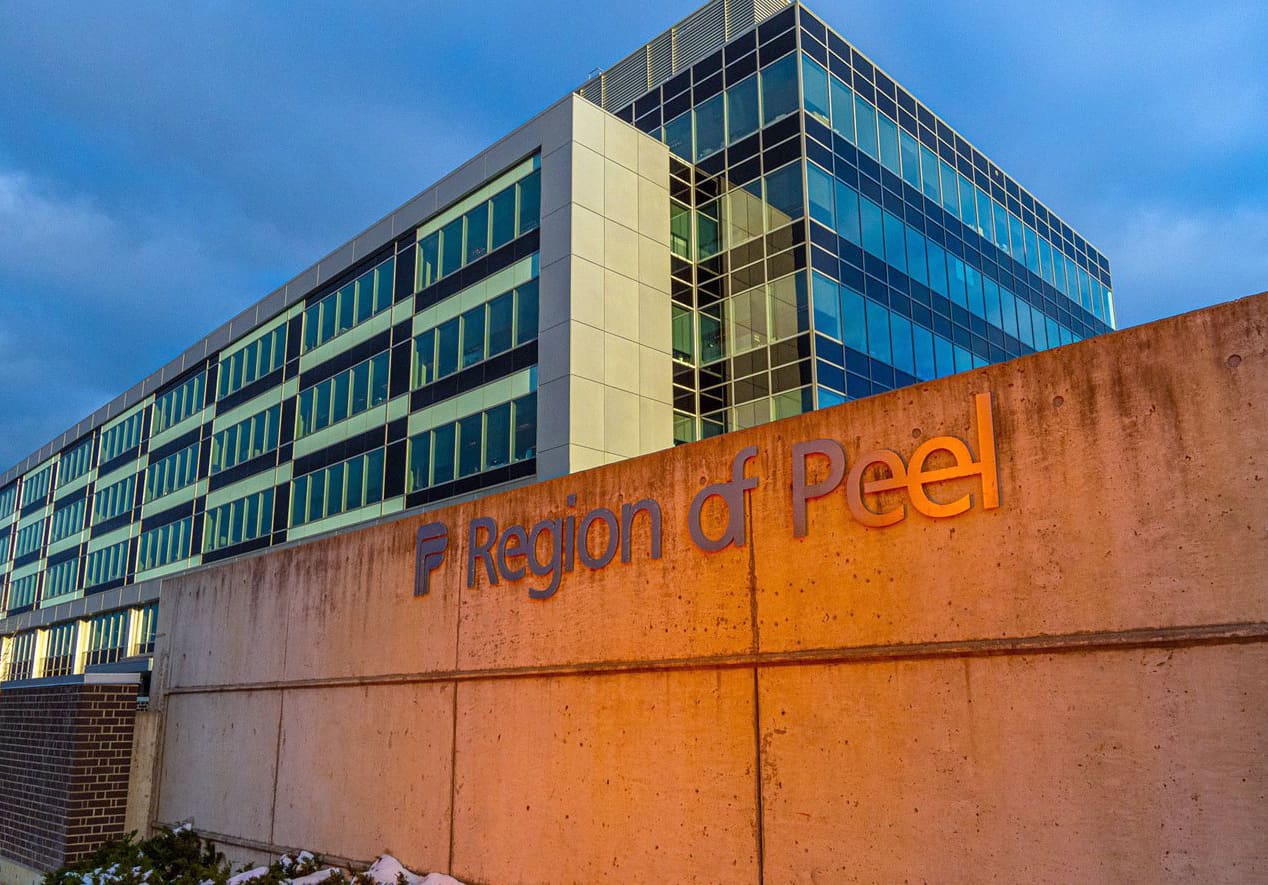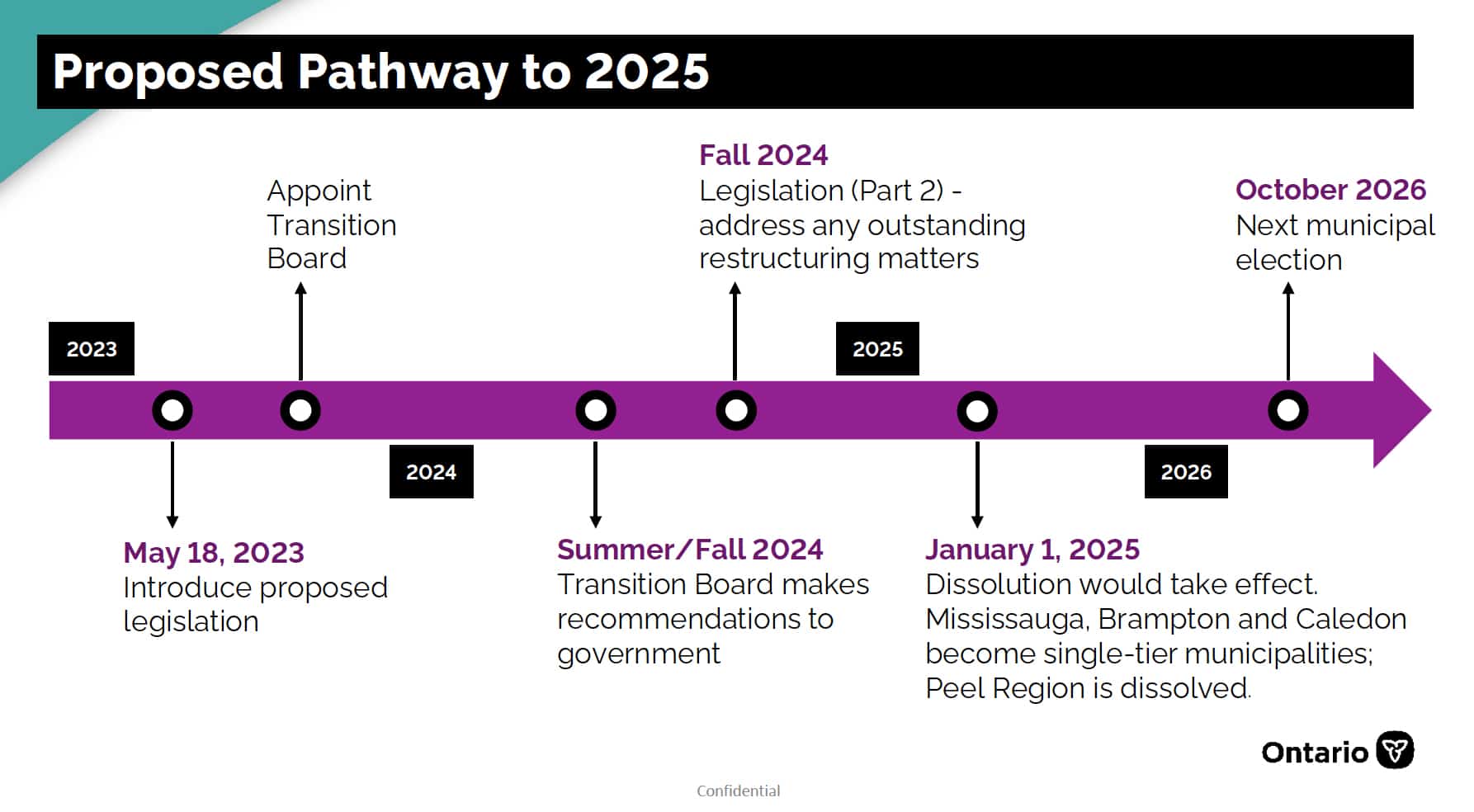Mississauga, Brampton and Caledon to leave Region of Peel by 2025
Published May 18, 2023 at 1:12 pm

The Region of Peel will be dissolved by 2025 — creating single-tier municipalities for Mississauga, Brampton and Caledon.
Steve Clark, Minister of Municipal Affairs and Housing, introduced the legislation, called the Hazel McCallion Act, to dissolve The Region of Peel today (May 18).
Clark called it “historic” and acknowledged McCallion in the introduction of the bill.
If all goes as planned, the two-tier government will be gone by 2025 and Mississauga, Brampton and Caledon will be single-tier municipalities.
Population growth and the need for more housing is the main reason behind the separation, provincial officials said in a technical briefing today.
The population of the region is expected to grow from 1.5 million to two million people by 2041.
Eliminating the upper-tier government is expected to speed up development approvals. And the separation will mean the municipalities “have the tools and autonomy they need to deliver on local priorities, including meeting the ambitious housing pledges they have agreed to.”
Officials also indicated that only the province has the authority to initiate a split.
The timeline for this process will start in the coming weeks and is expected to be complete by Jan. 1, 2025, ahead of the next municipal election in October 2026.

The process will start with the appointment of a transition board “to help ensure the process is fair and balanced by overseeing Peel and its lower-tiers’ financial affairs and making recommendations on implementing the restructuring.”
The transition board will have up to five members, appointed by the Minister of Municipal Affairs and Housing. Those members will have expertise in finance, labour matters and governance.
The board will consider the following issues and others as they arise:
- labour relations issues
- reviewing regional by-laws and disentangling regional services
- reviewing regional and lower-tier finances and their financial sustainability
- exploring new property taxing arrangements
- reviewing regional boards, commissions, etc.
The board will also oversee the financial decisions of all four municipalities to ensure that no decision is made that might be counter to that long term restructuring interest. For example, ensuring Peel doesn’t enter a contract that extends beyond 2024.
The transition board will make recommendations in the summer and fall of 2024.
The Region of Peel services include Peel Regional Paramedic Services, Peel Public Health, long-term care and services for seniors, child care support, garbage collection and recycling, water and water treatment, road maintenance, housing and shelter.
The region also oversees land-use planning, growth management, and development.
And the Peel Regional Police service is shared by Mississauga and Brampton.
But the province “expects local services to continue uninterrupted, with no impact on residents.”
It’s not clear how many Region of Peel employees may lose their jobs. While frontline staff such as paramedics, police and service workers in water treatment or waste management would likely keep their positions, administrative staff may not be needed.
Officials would only say the transition board would be advising on those decisions later in the process.
That is “one of the important roles that they will have…they will be looking at labor considerations as well.”
The question of Caledon and if it can stand on its own as an independent municipality will also be considered by the transition board. They’ll be looking at financial sustainability and infrastructure issues for Caledon.
The municipalities will cover the costs of the transition board and it’s not yet clear how much that will be.
Officials said it is premature to speak about impacts on taxpayers at this time.
INsauga's Editorial Standards and Policies


